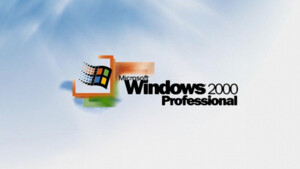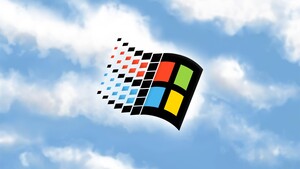S
SB1888
Gast
Hallo Leute,
folgendes unschönes Problem, sobald eine 3D Anwendung läuft:
30 min später direkt der nächste BSOD:
Meine Vermutung läuft irgendwo in Richtung RAM, obwohl dieser laut Memtest fehlerfrei arbeitet...
System:
- AMD Phenom II X3 710
- DFI Lanparty DK 790X-M2RS
- 2x 2GB Corsair CM2X2048-8500C5
- Enermax Pro82+ 425W
- WesternDigital WD5000AAKS
- Sapphire Vapor-X HD4850 1GB
- Windows Vista Home Premium x64
Erster BSOD weist auf einen Treiberfehler hin, leider kann ich daraus nicht genau erkennen
wo es hakt, das System ist die Tage frisch installiert worden, neustes BIOS drauf, aktuelle
Treiber u.a. AMD Catalyst 12.1
Kann jemand daraus nähere Informationen ableiten?
Grüße
SB1888
folgendes unschönes Problem, sobald eine 3D Anwendung läuft:
*******************************************************************************
* *
* Bugcheck Analysis *
* *
*******************************************************************************
Use !analyze -v to get detailed debugging information.
BugCheck 109, {a3a039d89a8fb530, b3b7465eed0c8264, fffff80002458000, 1}
Probably caused by : ntkrnlmp.exe ( nt!KeBugCheckEx+0 )
Followup: MachineOwner
---------
2: kd> !analyze -v
*******************************************************************************
* *
* Bugcheck Analysis *
* *
*******************************************************************************
CRITICAL_STRUCTURE_CORRUPTION (109)
This bugcheck is generated when the kernel detects that critical kernel code or
data have been corrupted. There are generally three causes for a corruption:
1) A driver has inadvertently or deliberately modified critical kernel code
or data. See http://www.microsoft.com/whdc/driver/kernel/64bitPatching.mspx
2) A developer attempted to set a normal kernel breakpoint using a kernel
debugger that was not attached when the system was booted. Normal breakpoints,
"bp", can only be set if the debugger is attached at boot time. Hardware
breakpoints, "ba", can be set at any time.
3) A hardware corruption occurred, e.g. failing RAM holding kernel code or data.
Arguments:
Arg1: a3a039d89a8fb530, Reserved
Arg2: b3b7465eed0c8264, Reserved
Arg3: fffff80002458000, Current CRC of the protected region
Arg4: 0000000000000001, Type of corrupted region, can be
0 : A generic data region
1 : A RUNTIME_FUNCTION (.pdata) array
2 : A processor IDT
3 : A processor GDT
4 : Type 1 process list corruption
5 : Type 2 process list corruption
Otherwise, a modification was detected in a nested function and
parameter 4 points to the function's associated RUNTIME_FUNCTION
structure.
Debugging Details:
------------------
OVERLAPPED_MODULE: luafv
CUSTOMER_CRASH_COUNT: 1
DEFAULT_BUCKET_ID: DRIVER_FAULT
BUGCHECK_STR: 0x109
CURRENT_IRQL: 0
STACK_TEXT:
FOLLOWUP_IP:
nt!KeBugCheckEx+0
fffff800`022b4490 48894c2408 mov [rsp+0x8],rcx
FOLLOWUP_NAME: MachineOwner
SYMBOL_NAME: nt!KeBugCheckEx+0
MODULE_NAME: nt
IMAGE_NAME: ntkrnlmp.exe
DEBUG_FLR_IMAGE_TIMESTAMP: 4dfb5a33
STACK_COMMAND: kb
FAILURE_BUCKET_ID: X64_0x109_nt!KeBugCheckEx+0
BUCKET_ID: X64_0x109_nt!KeBugCheckEx+0
Followup: MachineOwner
---------
* *
* Bugcheck Analysis *
* *
*******************************************************************************
Use !analyze -v to get detailed debugging information.
BugCheck 109, {a3a039d89a8fb530, b3b7465eed0c8264, fffff80002458000, 1}
Probably caused by : ntkrnlmp.exe ( nt!KeBugCheckEx+0 )
Followup: MachineOwner
---------
2: kd> !analyze -v
*******************************************************************************
* *
* Bugcheck Analysis *
* *
*******************************************************************************
CRITICAL_STRUCTURE_CORRUPTION (109)
This bugcheck is generated when the kernel detects that critical kernel code or
data have been corrupted. There are generally three causes for a corruption:
1) A driver has inadvertently or deliberately modified critical kernel code
or data. See http://www.microsoft.com/whdc/driver/kernel/64bitPatching.mspx
2) A developer attempted to set a normal kernel breakpoint using a kernel
debugger that was not attached when the system was booted. Normal breakpoints,
"bp", can only be set if the debugger is attached at boot time. Hardware
breakpoints, "ba", can be set at any time.
3) A hardware corruption occurred, e.g. failing RAM holding kernel code or data.
Arguments:
Arg1: a3a039d89a8fb530, Reserved
Arg2: b3b7465eed0c8264, Reserved
Arg3: fffff80002458000, Current CRC of the protected region
Arg4: 0000000000000001, Type of corrupted region, can be
0 : A generic data region
1 : A RUNTIME_FUNCTION (.pdata) array
2 : A processor IDT
3 : A processor GDT
4 : Type 1 process list corruption
5 : Type 2 process list corruption
Otherwise, a modification was detected in a nested function and
parameter 4 points to the function's associated RUNTIME_FUNCTION
structure.
Debugging Details:
------------------
OVERLAPPED_MODULE: luafv
CUSTOMER_CRASH_COUNT: 1
DEFAULT_BUCKET_ID: DRIVER_FAULT
BUGCHECK_STR: 0x109
CURRENT_IRQL: 0
STACK_TEXT:
FOLLOWUP_IP:
nt!KeBugCheckEx+0
fffff800`022b4490 48894c2408 mov [rsp+0x8],rcx
FOLLOWUP_NAME: MachineOwner
SYMBOL_NAME: nt!KeBugCheckEx+0
MODULE_NAME: nt
IMAGE_NAME: ntkrnlmp.exe
DEBUG_FLR_IMAGE_TIMESTAMP: 4dfb5a33
STACK_COMMAND: kb
FAILURE_BUCKET_ID: X64_0x109_nt!KeBugCheckEx+0
BUCKET_ID: X64_0x109_nt!KeBugCheckEx+0
Followup: MachineOwner
---------
30 min später direkt der nächste BSOD:
*******************************************************************************
* *
* Bugcheck Analysis *
* *
*******************************************************************************
Use !analyze -v to get detailed debugging information.
BugCheck A, {2a500238e49a, 2, 0, fffff80002240706}
Probably caused by : memory_corruption ( nt!MiDeletePfnList+176 )
Followup: MachineOwner
---------
2: kd> !analyze -v
*******************************************************************************
* *
* Bugcheck Analysis *
* *
*******************************************************************************
IRQL_NOT_LESS_OR_EQUAL (a)
An attempt was made to access a pageable (or completely invalid) address at an
interrupt request level (IRQL) that is too high. This is usually
caused by drivers using improper addresses.
If a kernel debugger is available get the stack backtrace.
Arguments:
Arg1: 00002a500238e49a, memory referenced
Arg2: 0000000000000002, IRQL
Arg3: 0000000000000000, value 0 = read operation, 1 = write operation
Arg4: fffff80002240706, address which referenced memory
Debugging Details:
------------------
READ_ADDRESS: unable to get MiSystemVaType - probably bad symbols
00002a500238e49a
CURRENT_IRQL: 2
FAULTING_IP:
nt!MiDeletePfnList+176
fffff800`02240706 0fb6411a movzx eax,byte ptr [rcx+0x1a]
CUSTOMER_CRASH_COUNT: 2
DEFAULT_BUCKET_ID: DRIVER_FAULT
BUGCHECK_STR: 0xA
LAST_CONTROL_TRANSFER: from fffff8000226022e to fffff80002260490
STACK_TEXT:
fffffa60`0aa87e08 fffff800`0226022e : 00000000`0000000a 00002a50`0238e49a 00000000`00000002 00000000`00000000 : nt!KeBugCheckEx
fffffa60`0aa87e10 fffff800`0225f10b : 00000000`00000000 00000000`00000000 00000000`00000000 fffff680`00076520 : nt!KiBugCheckDispatch+0x6e
fffffa60`0aa87f50 fffff800`02240706 : fffffa60`017637f0 fffff700`012a15e0 00000000`0000e42c 00000003`00000000 : nt!KiPageFault+0x20b
fffffa60`0aa880e0 fffff800`0223fe97 : fffffa80`0441e040 fffff700`000182dd 00000000`00000000 fffff700`01080b38 : nt!MiDeletePfnList+0x176
fffffa60`0aa88170 fffff800`0223f498 : fffffa80`0441e040 fffffa80`00016e1f fffffa80`00000000 00000000`00000001 : nt!MiDeleteAddressesInWorkingSet+0x308
fffffa60`0aa88a30 fffff800`024b9efd : fffff880`105eea70 00000000`00000000 00000000`00000000 00000000`00000000 : nt!MmCleanProcessAddressSpace+0xa8
fffffa60`0aa88a80 fffff800`024bc391 : 00000000`00000000 fffffa80`07948501 00000000`7efdb000 00000000`00000000 : nt!PspExitThread+0x4ad
fffffa60`0aa88b70 fffff800`024ac9c2 : 00000000`00000000 00000000`0000000c 00000000`7efdd000 fffff880`0000000c : nt!PspTerminateThreadByPointer+0x4d
fffffa60`0aa88bc0 fffff800`0225ff33 : fffffa80`0441e040 fffffa80`07948500 fffffa60`0aa88ca0 00000000`7efdd000 : nt!NtTerminateProcess+0xfa
fffffa60`0aa88c20 00000000`776f713a : 00000000`00000000 00000000`00000000 00000000`00000000 00000000`00000000 : nt!KiSystemServiceCopyEnd+0x13
00000000`0007e5a8 00000000`00000000 : 00000000`00000000 00000000`00000000 00000000`00000000 00000000`00000000 : 0x776f713a
FOLLOWUP_IP:
nt!MiDeletePfnList+176
fffff800`02240706 0fb6411a movzx eax,byte ptr [rcx+0x1a]
SYMBOL_STACK_INDEX: 3
FOLLOWUP_NAME: MachineOwner
SYMBOL_NAME: nt!MiDeletePfnList+176
MODULE_NAME: nt
DEBUG_FLR_IMAGE_TIMESTAMP: 4dfb5a33
STACK_COMMAND: kb
IMAGE_NAME: memory_corruption
FAILURE_BUCKET_ID: X64_0xA_nt!MiDeletePfnList+176
BUCKET_ID: X64_0xA_nt!MiDeletePfnList+176
Followup: MachineOwner
---------
* *
* Bugcheck Analysis *
* *
*******************************************************************************
Use !analyze -v to get detailed debugging information.
BugCheck A, {2a500238e49a, 2, 0, fffff80002240706}
Probably caused by : memory_corruption ( nt!MiDeletePfnList+176 )
Followup: MachineOwner
---------
2: kd> !analyze -v
*******************************************************************************
* *
* Bugcheck Analysis *
* *
*******************************************************************************
IRQL_NOT_LESS_OR_EQUAL (a)
An attempt was made to access a pageable (or completely invalid) address at an
interrupt request level (IRQL) that is too high. This is usually
caused by drivers using improper addresses.
If a kernel debugger is available get the stack backtrace.
Arguments:
Arg1: 00002a500238e49a, memory referenced
Arg2: 0000000000000002, IRQL
Arg3: 0000000000000000, value 0 = read operation, 1 = write operation
Arg4: fffff80002240706, address which referenced memory
Debugging Details:
------------------
READ_ADDRESS: unable to get MiSystemVaType - probably bad symbols
00002a500238e49a
CURRENT_IRQL: 2
FAULTING_IP:
nt!MiDeletePfnList+176
fffff800`02240706 0fb6411a movzx eax,byte ptr [rcx+0x1a]
CUSTOMER_CRASH_COUNT: 2
DEFAULT_BUCKET_ID: DRIVER_FAULT
BUGCHECK_STR: 0xA
LAST_CONTROL_TRANSFER: from fffff8000226022e to fffff80002260490
STACK_TEXT:
fffffa60`0aa87e08 fffff800`0226022e : 00000000`0000000a 00002a50`0238e49a 00000000`00000002 00000000`00000000 : nt!KeBugCheckEx
fffffa60`0aa87e10 fffff800`0225f10b : 00000000`00000000 00000000`00000000 00000000`00000000 fffff680`00076520 : nt!KiBugCheckDispatch+0x6e
fffffa60`0aa87f50 fffff800`02240706 : fffffa60`017637f0 fffff700`012a15e0 00000000`0000e42c 00000003`00000000 : nt!KiPageFault+0x20b
fffffa60`0aa880e0 fffff800`0223fe97 : fffffa80`0441e040 fffff700`000182dd 00000000`00000000 fffff700`01080b38 : nt!MiDeletePfnList+0x176
fffffa60`0aa88170 fffff800`0223f498 : fffffa80`0441e040 fffffa80`00016e1f fffffa80`00000000 00000000`00000001 : nt!MiDeleteAddressesInWorkingSet+0x308
fffffa60`0aa88a30 fffff800`024b9efd : fffff880`105eea70 00000000`00000000 00000000`00000000 00000000`00000000 : nt!MmCleanProcessAddressSpace+0xa8
fffffa60`0aa88a80 fffff800`024bc391 : 00000000`00000000 fffffa80`07948501 00000000`7efdb000 00000000`00000000 : nt!PspExitThread+0x4ad
fffffa60`0aa88b70 fffff800`024ac9c2 : 00000000`00000000 00000000`0000000c 00000000`7efdd000 fffff880`0000000c : nt!PspTerminateThreadByPointer+0x4d
fffffa60`0aa88bc0 fffff800`0225ff33 : fffffa80`0441e040 fffffa80`07948500 fffffa60`0aa88ca0 00000000`7efdd000 : nt!NtTerminateProcess+0xfa
fffffa60`0aa88c20 00000000`776f713a : 00000000`00000000 00000000`00000000 00000000`00000000 00000000`00000000 : nt!KiSystemServiceCopyEnd+0x13
00000000`0007e5a8 00000000`00000000 : 00000000`00000000 00000000`00000000 00000000`00000000 00000000`00000000 : 0x776f713a
FOLLOWUP_IP:
nt!MiDeletePfnList+176
fffff800`02240706 0fb6411a movzx eax,byte ptr [rcx+0x1a]
SYMBOL_STACK_INDEX: 3
FOLLOWUP_NAME: MachineOwner
SYMBOL_NAME: nt!MiDeletePfnList+176
MODULE_NAME: nt
DEBUG_FLR_IMAGE_TIMESTAMP: 4dfb5a33
STACK_COMMAND: kb
IMAGE_NAME: memory_corruption
FAILURE_BUCKET_ID: X64_0xA_nt!MiDeletePfnList+176
BUCKET_ID: X64_0xA_nt!MiDeletePfnList+176
Followup: MachineOwner
---------
System:
- AMD Phenom II X3 710
- DFI Lanparty DK 790X-M2RS
- 2x 2GB Corsair CM2X2048-8500C5
- Enermax Pro82+ 425W
- WesternDigital WD5000AAKS
- Sapphire Vapor-X HD4850 1GB
- Windows Vista Home Premium x64
Erster BSOD weist auf einen Treiberfehler hin, leider kann ich daraus nicht genau erkennen
wo es hakt, das System ist die Tage frisch installiert worden, neustes BIOS drauf, aktuelle
Treiber u.a. AMD Catalyst 12.1
Kann jemand daraus nähere Informationen ableiten?
Grüße
SB1888



